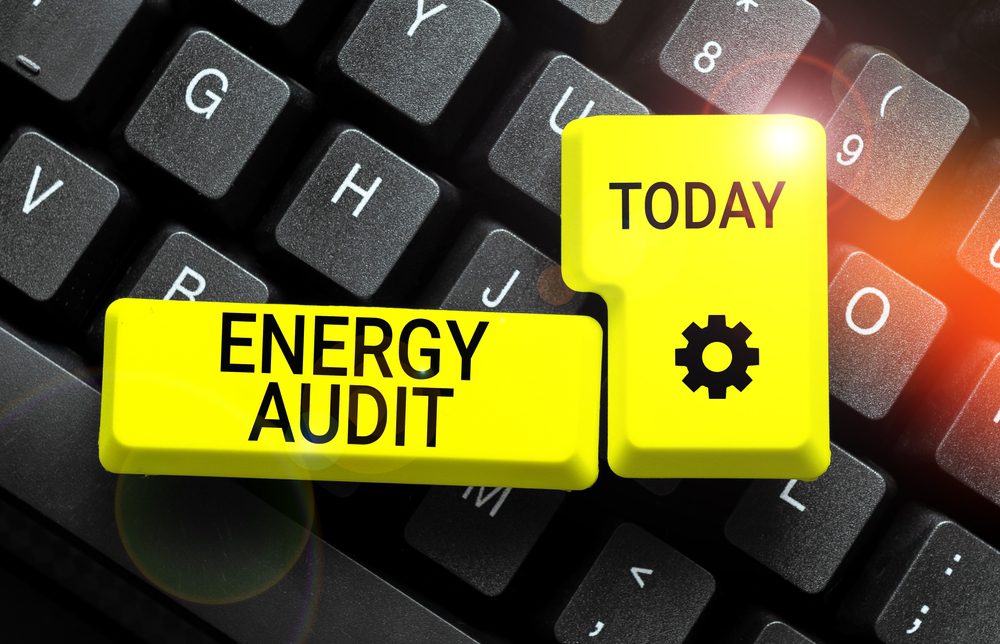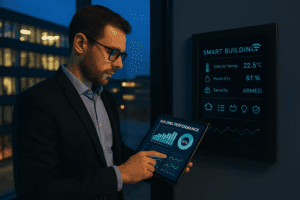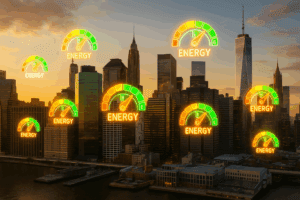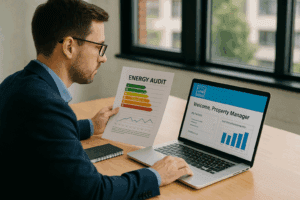Did you know that one of the most effective ways to save
energy and money in your home or business is by conducting an energy audit? Energy audits, also known as energy assessments, are designed to identify and analyze opportunities for reducing energy waste. These targeted evaluations can help homeowners and businesses understand their current energy use patterns, identify areas where they may be unnecessarily losing money on inefficient equipment or appliances, and suggest profitable solutions that reduce utility bills while simultaneously minimizing a property’s carbon footprint. In this blog post, we will discuss the purpose of an energy audit as well as provide more detail about what can be expected throughout the process.
Basics Of Energy Audits
An energy audit is an inspection and analysis of a building or facility to identify areas where energy efficiency can be improved. It involves analyzing the energy usage of lighting, HVAC systems, electrical equipment, appliances, and other components across your premises.
An energy audit offers insight into why you are consuming more energy than necessary and suggests ways in which you can save energy – often at little to no cost. This can result in significant reductions on your monthly utility bills. A professional should perform an energy audit for a thorough review of the property’s energy use, however some simple DIY activities like installing LED lightbulbs or scheduling regular boiler or air conditioning maintenance check-ups can get you started on saving money right away.
Purpose Of Energy Audits
Energy Audits are an invaluable tool in energy-efficiency. With the help of an energy auditor, wasteful energy consumption and energy loss can be identified and addressed through energy efficiency upgrades. An energy audit will determine how energy is being used in the home or business, what is driving up energy costs and ways to reduce energy bills through energy efficiency upgrades. An energy audit will also consider lifestyle changes that can reduce energy use, thereby reducing energy costs. The cost of an energy audit is minor compared to the potential savings on energy bills and improvements in environmental performance.
How Much Does an Energy Audit Cost?
Home energy audits may sound complex and expensive, but they actually don’t have to be. In fact, free home energy audits are sometimes available through local government programs.
These free energy audits can assess your current energy profile and provide recommendations on how to make efficient improvements – saving you money and naturally reducing your environmental impact in the process. Even if a free audit isn’t an option for you, most home energy audit costs are quite reasonable given the potential savings over time. Regardless of your budget, investing in a comprehensive home energy audit is an important step towards becoming as energy efficient as possible.
Types Of Energy Audits

A detailed energy audit is a thorough examination of the energy use and cost associated with an entire facility or main building. This type of audit may involve inspecting heating and cooling systems, lighting, ventilation equipment, hot water usage, occupancy patterns, and other energy-consuming equipment. The detailed energy audit produces detailed information related to every facet of the building’s energy use so that stakeholders can gain a better understanding of overall costs, as well as identify areas for potential improvement and cost savings.
The results can be used to plan for upgrades or replacements in order to make the building more efficient. Additionally, detailed energy auditing can also provide a more detailed analysis of existing renewables, including solar power systems. This type of Energy Audit can enable owners and managers to get an accurate picture of their current setup and evaluate opportunities for growth over time.
Benefits Of Energy Audits
Energy audits are a great way to identify and reduce energy costs, improve the efficiency of appliances and systems, and help protect the environment. Here are some of the benefits of having an energy audit done:
Identifying Energy Inefficiencies
An energy audit can identify areas where energy is being wasted. This includes identifying issues in your home’s insulation, ventilation, lighting, and heating/cooling systems.
Lower Energy Bills
An energy audit can identify areas where you can reduce your energy usage, resulting in lower monthly bills. By reducing the amount of energy used, you will save money on your energy bills.
Increased Comfort
An energy audit can identify areas where you can make improvements in your home that will improve the comfort level of those living in the home. This can include improving insulation, ventilation, and lighting.
Enhancing Indoor Air Quality
An energy audit can identify and help reduce sources of indoor air pollution, such as combustion appliances and outdoor pollutants.
Reducing Environmental Impact
An energy audit can identify areas where you can reduce your home’s carbon footprint. This includes identifying inefficient appliances and systems, reducing water usage, and increasing energy efficiency.
By having an energy audit done, you can make improvements that not only save you money but also help protect the environment.
This is why energy audits are an important step in creating a more efficient and comfortable home for you and your family. They can help you identify and reduce energy costs, improve the efficiency of appliances and systems, and help protect the environment.
What Is the Energy Audit Process
An energy audit is a comprehensive inspection that evaluates energy use and energy conservation measures, such as insulation and heating and cooling systems, among other things. The energy auditor assesses energy savings opportunities that may exist while providing recommendations to the customer on measures they can take to reduce energy consumption and related costs.
During a typical energy audit, home or business owners are advised on potential ways to decrease energy use by understanding how the building’s central systems perform. An audit provides key information such as where energy losses occur, how to best conserve energy, and what additional equipment is available for greater energy savings. From start to finish, energy audits are quick and efficient – and will often provide measurable results so you can effectively track energy conservation efforts in your home or business!
Things To Consider When Using Energy Audits
1. Establishing Goals: The first step in conducting an energy audit is to establish goals for the audit that can be measured, realistic and achievable. These goals should identify what you are trying to achieve with the audit and should be tailored to the specific needs of your building or facility.
2. Understanding Your Energy Use: Knowing how your building or facility utilizes energy is an important step in understanding where you can make improvements and reduce energy waste. You should be familiar with how much energy your building or facility uses, what type of equipment and systems are in use, and how much energy is consumed at peak times.
3. Energy Efficiency Opportunities: An energy audit should identify opportunities to improve the efficiency of your building or facility. This may include replacing inefficient systems or equipment, implementing energy-efficient practices and technologies, or retrofitting existing systems with more efficient components.
4. Cost Analysis: An energy audit should also provide an analysis of the costs associated with any proposed energy efficiency opportunities. This includes the cost of the new equipment, installation costs, and any expected savings that may be realized from implementing these upgrades.
5. Resources: Your energy audit should provide a list of resources and contacts that can help you in implementing any recommended efficiency upgrades. This may include local utility providers, professional energy auditors, or government agencies that can provide assistance.
6. Monitoring and Evaluation: After any efficiency upgrades have been implemented, it is important to monitor and evaluate the results to ensure that they are meeting the goals set for them. This may include tracking energy use or cost savings over time, or performing follow-up audits to monitor the effectiveness of any changes.
These are just a few things to consider when conducting an energy audit, but they are important steps in ensuring that your energy audit is comprehensive, effective, and successful. By taking the time to properly plan for and implement changes based on the results of your energy audit, you can help reduce energy waste and save money.
Tips To Use Energy Audits To Improve Your Building’s Efficiency
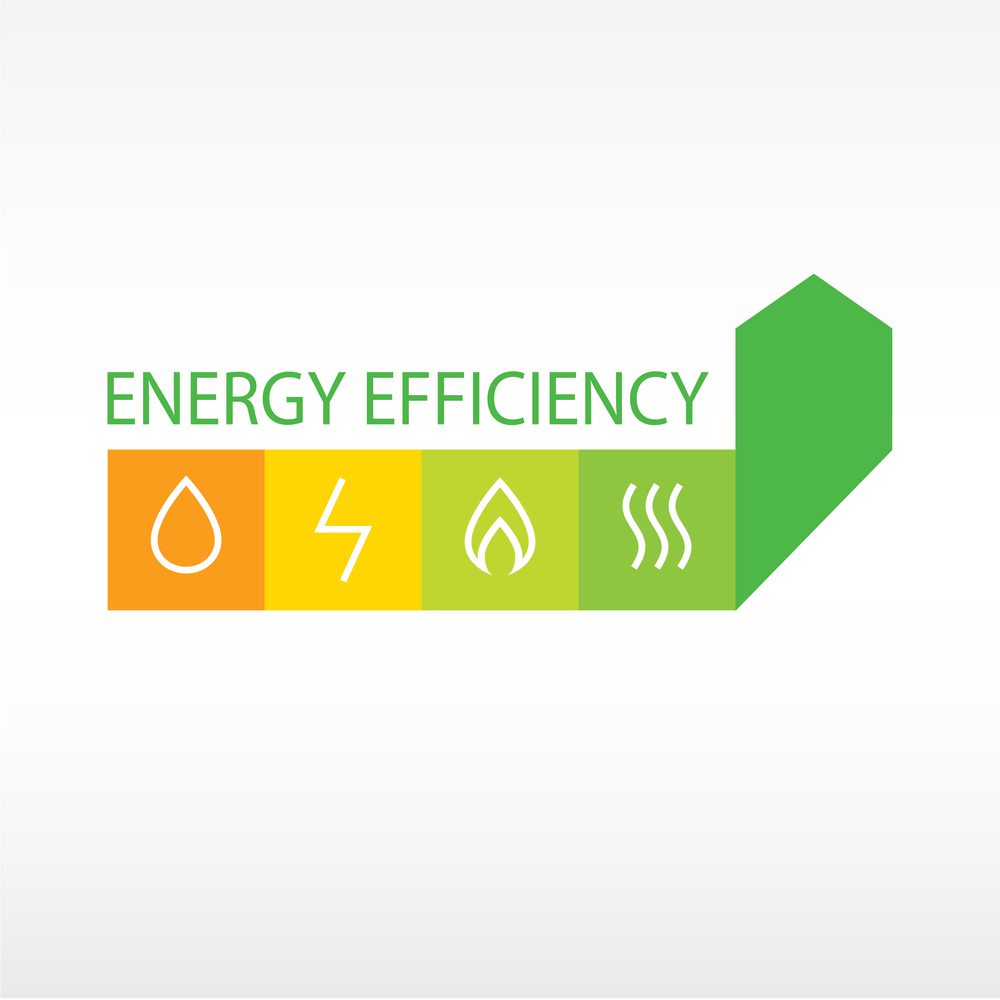
1. Calculate the energy use of your building- An important part of an energy audit is to accurately calculate the energy use of your building. This can be done by collecting data on energy bills, fuel and water usage, as well as taking readings from meters and other energy-monitoring equipment.
2. Identify areas of high energy consumption- Once you have collected data on your building’s energy use, you can begin to identify areas of high consumption. This will help you pinpoint where changes need to be implemented in order to improve efficiency.
3. Invest in energy-efficient appliances- Installing efficient appliances is one of the most effective ways to reduce your building’s energy use. Look for appliances that are Energy Star certified, as this will guarantee you the highest level of efficiency.
4. Educate and train staff- Having your staff trained on energy efficiency is essential. Educating them on how to use appliances properly, as well as teaching them about the importance of energy efficiency can go a long way in ensuring that your building is being operated as efficiently as possible.
5. Regularly monitor energy consumption- Regularly monitoring your building’s energy consumption is key to ensuring that it remains as efficient as possible. Install energy meters and monitor performance to keep tabs on how much energy is being used and where changes could be made.
6. Take advantage of available incentives- Many local and state governments offer incentives for businesses that invest in energy efficiency. Taking advantage of these can help you save money while also reducing your building’s energy use.
7. Invest in green technologies- Investing in green technologies, such as solar panels or geothermal heating and cooling systems, is a great way to reduce your building’s energy use. Not only can these technologies save you money in the long run, they can also help reduce your environmental impact.
By following these tips, you can make sure that your building is as energy efficient as possible. By taking the time to carry out an energy audit and implementing any necessary changes, you can save both money and reduce your building’s environmental footprint.
Conclusion
Energy audits help individuals and businesses alike to conserve energy, save money, and minimize their impact on the environment. The first step is always understanding your baseline usage through an energy audit. From there, you can make informed decisions about where to invest in energy efficiency improvements. Implementing these changes can be as simple or complex as you make them – the key is just getting started towards a more sustainable future.


